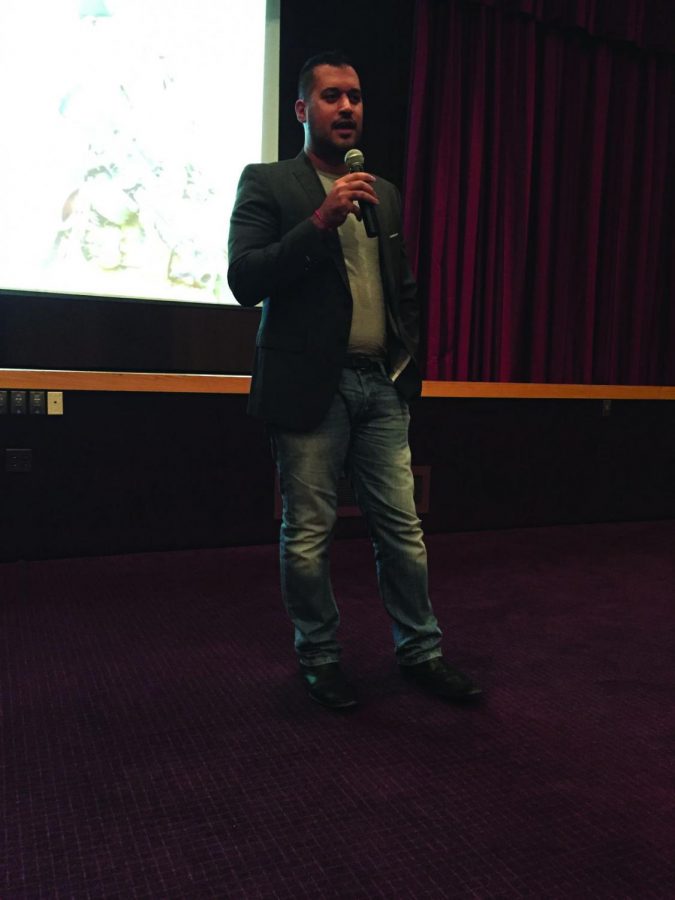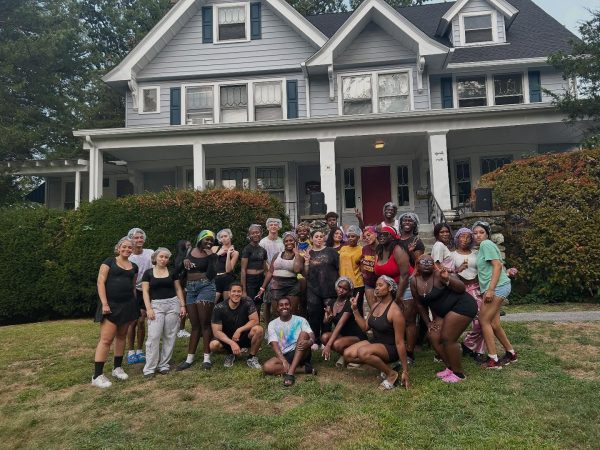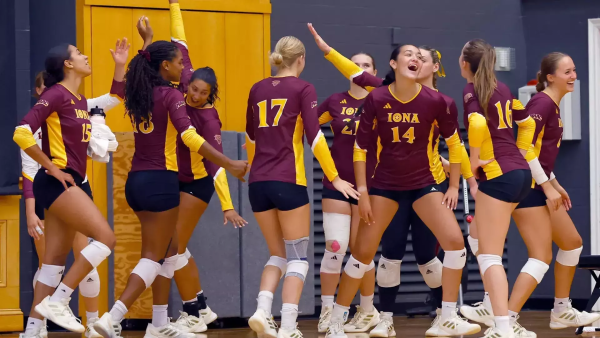Haider Hamza informs students about living in war zones
November 12, 2015
War-time journalist Haider Hamza described his experiences covering armed conflict and what it is like to live in a battle zone in a presentation during Iona College’s Week of the Peacemaker.
Hamza was born in Iraq and war played a part in his daily life.
“I hate war, just as anyone who knows war would,” Hamza said. “But there is so much talk with so little experience.”
He stressed the importance of humanizing war and looking at the conflict from both sides. These steps allow people to understand how war actually looks from the ground.
“War is like living through 9/11 every day for years,” Hamza said.
He spoke about how he became such an important figure in war-time journalism. In his last year of high school, the U.S. invaded his hometown. He followed the tanks around for days to see the destruction they were causing.
In the first week of the invasion, 132 homes were searched ,blown up by the tanks, and 60 civilians were killed. He blames this on the human ideal that if we believe we’re right in our beliefs, we have the right to kill for it.
“War goes from the fight between ideologies to wars based on revenge,” Hamza said.
As the years went on, he noticed something strange going on with the relationship between the soldiers and the people.
When the soldiers first arrived, all the children would run up and greet them with the biggest smiles. But over time, as people became more nervous, they weren’t even allowed to be within 100 yards of any solider at any time. And if they got closer, the soldiers had the right to use force.
“There was an opportunity for this war to end very well,” Hamza said. “But the cultural bridges that were needed weren’t built in time.”
According to Hamza, the soldiers invading needed to understand the culture of the natives, which was different from their own. However, they failed to do so because they only saw their side.
“You can say you see things from another perspective,” Hamza said. “In reality it’s impossible to stand in another person’s shoes. You would have to, from the beginning of their life, go through everything they’ve experienced, and that is impossible.”
Hamza concluded his story by saying that his country has been torn apart by war through the destruction of historical buildings and the number of people who live through the combat.
“Iraq for the longest time was known for having the oldest churches, the oldest universities and having the most diverse group of people,” Hamza said. “But I have grown up seeing Iraq – this beautiful piece of fabric – torn apart in so many directions that now it will be impossible to be put back together exactly. And I only hope that one day instead of coming to schools and talking about the war, I can come and talk about the culture, about the food and the wonderful people we have.”







